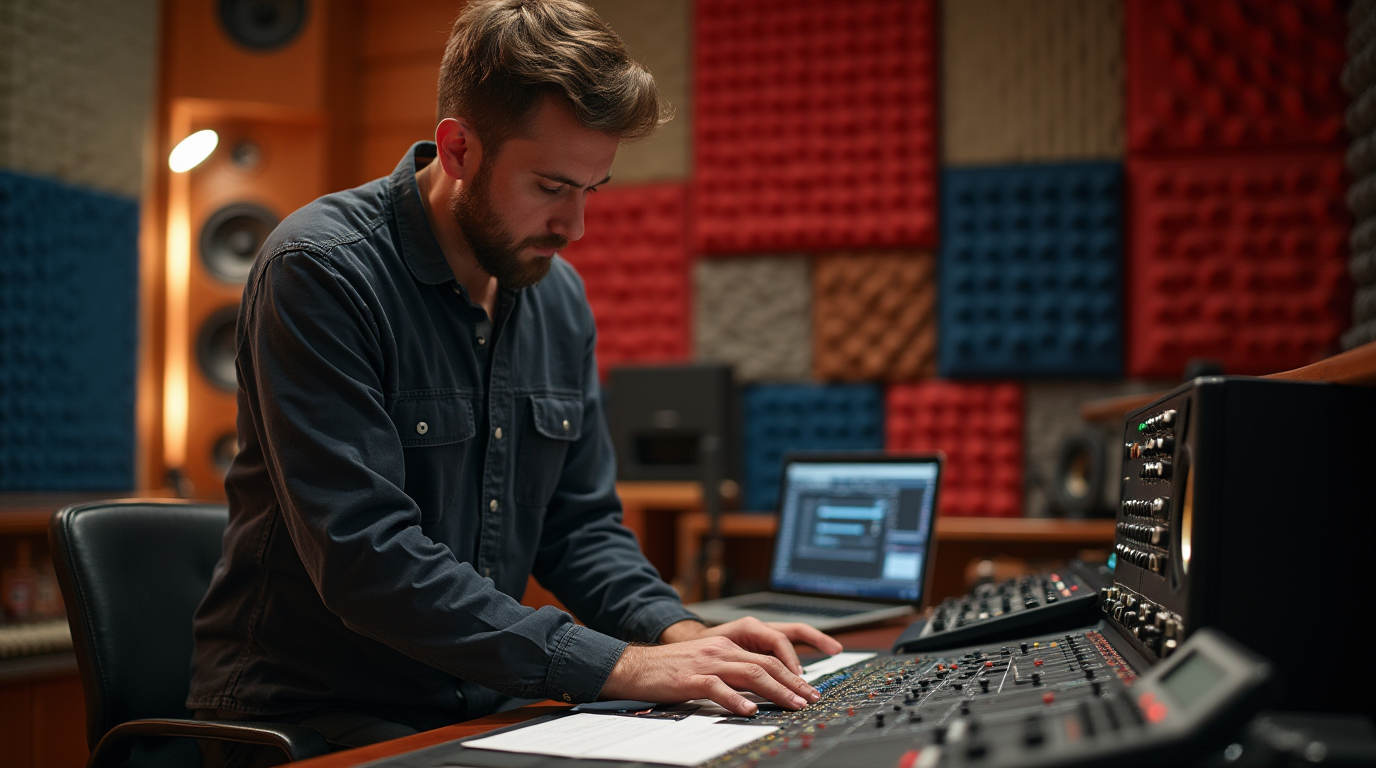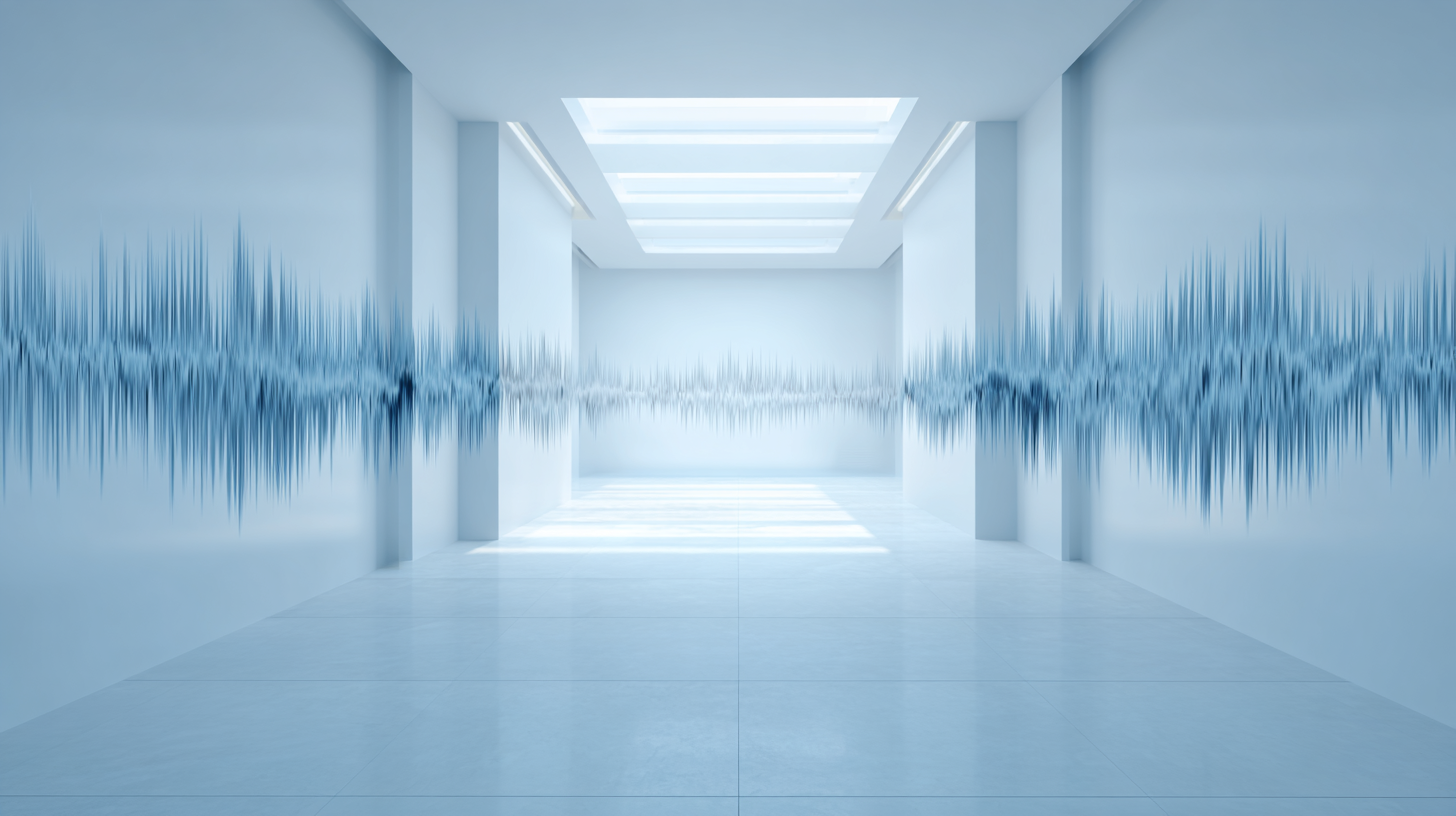The Essential Role of Acoustic Specialists in Creating Better Sound Environments
We rarely think about sound unless it's bothering us. But acoustics make all the difference, whether you're trying to focus in an open office, enjoy music in a theater, or sleep in a city apartment. That's where acoustic specialists come in. These professionals design sound environments that are clear, balanced, and free from unwanted noise.
Demand for acoustic expertise has grown across many industries - architecture, healthcare, education, media, and real estate. As buildings become more complex and open-plan designs more common, managing sound effectively is now a critical part of design and construction.
In daily life, good acoustics improve productivity, well-being, and privacy. Bad acoustics do the opposite. Understanding what makes an expert in this field and how they work can help you make smarter choices, whether you're planning a home studio or managing a commercial project.
What Defines an Acoustic Specialist
An acoustic specialis, also known as an acoustic consultant or acoustic engineer - is a trained expert who analyzes and optimizes sound environments. They work to control noise, improve speech clarity, and tailor acoustics to the specific function of a space.
Most professionals in this field hold degrees in acoustics, physics, mechanical engineering, or architecture, often followed by specialized certifications. Some may focus on environmental acoustics, others on soundproofing or architectural design.
They're trained in both the science and application of acoustics. That includes knowing how to test sound behavior in real spaces, model outcomes digitally, and apply advanced materials to solve complex sound challenges.
Unlike general contractors or architects, an acoustic consultant is solely focused on sound. They often work alongside other professionals but bring unique insight into how materials, layouts, and systems affect the acoustic environment.
The Science Behind Acoustic Engineering
Acoustics is the science of sound - how it moves, how it interacts with surfaces, and how it affects human experience. One of the first things an acoustic engineer learns is how sound travels in waves. These waves vary in frequency and amplitude, which affects how we hear them.
Lower frequencies (like a bass drum or a truck engine) travel farther and are harder to block. Higher frequencies are easier to absorb but bounce off hard surfaces. Understanding these differences is key when designing treatment solutions.
Sound can be reflected, absorbed, or transmitted. For example, hard surfaces like glass reflect sound, while soft materials like acoustic panels absorb it. The goal of treatment is to find the right balance for each space.
Soundproofing consultants measure sound using tools like SPL meters and analyzers. They assess reverberation time, background noise levels, and sound transmission between rooms. These measurements guide the design process and help validate that a solution works in practice.
Areas of Specialization
The world of acoustics is diverse. Most acoustic specialists choose an area of focus based on their skills and interests. Here are a few key specializations:
Architectural Acoustics
These consultants work closely with architects and builders to design buildings that sound as good as they look. They help ensure clarity in classrooms, comfort in offices, and privacy in apartments.
Environmental Noise Control
This specialization focuses on managing outdoor sound and includes highway noise, airports, industrial zones, and city planning. Experts measure decibel levels and design barriers, buffers, and zoning strategies.
Industrial Noise Management
Factories, plants, and machine-heavy environments often require strict noise controls. Acoustic engineers here aim to protect workers' hearing, ensure compliance, and improve workplace conditions.
Entertainment and Performance Venue Acoustics
This field requires precise control over reverberation and sound distribution from concert halls to movie theaters. Every seat should offer the same great audio experience.
Recording Studio Design
This is a highly technical field that involves detailed modeling and material selection to eliminate unwanted reflections and echoes and ensure a clean, controlled recording space.
Residential Soundproofing Solutions
More homeowners hire soundproofing consultants to block street noise, silence noisy neighbors, and create quiet zones for sleep or remote work. These specialists offer customized solutions for homes and apartments.
Tools and Technologies Used by Acoustic Specialists
Professional acousticians don't guess - they measure. They use a range of specialized equipment to understand and shape sound environments.
Sound measurement tools include decibel meters, real-time analyzers, and reverberation testers. These devices provide objective data about how sound behaves in a space.
Computer modeling software plays a big role too. Acoustic simulation programs like EASE or Odeon allow specialists to predict how sound will travel through a space before construction begins. This prevents costly mistakes.
Material selection is also critical. Acoustic panels, baffles, bass traps, mass-loaded vinyl, and isolators are just a few of the advanced products used in treatment. The right materials depend on the specific problem and the space.
Testing doesn't stop at the beginning. Many acoustic consultants return after installation to verify performance and fine-tune the system. Standards like ASTM and ISO guide both testing procedures and design criteria.
The Process of Acoustic Assessment and Treatment
Every successful project begins with a detailed consultation. The acoustic specialist meets with the client to understand the space, its function, and the issues people are experiencing - whether it's too much echo, lack of privacy, or external noise.
Next comes site evaluation. This involves measuring current acoustic conditions using precision instruments. Sound pressure levels, reverberation time, and room transmission loss are analyzed.
From here, the acoustic consultant identifies the root causes of the problem. Is the noise structure-borne or airborne? Are reflections coming from hard surfaces? Is the HVAC system too loud?
Once the analysis is complete, the specialist develops a custom acoustic solution. This may involve adding treatment panels, upgrading insulation, or redesigning the layout. The plan is tailored to both performance and aesthetics.
After implementation, many soundproofing consultants perform post-installation testing. This ensures that the treatment is effective and meets any required standards - whether regulatory or performance-based.
Benefits of Hiring an Acoustic Specialist
Hiring a trained acoustic engineer offers far more than a quieter room. The benefits are real, measurable, and long-lasting.
First, you get better sound quality. In offices, this means clearer speech and fewer distractions. In homes or studios, it means improved listening and recording environments.
You also gain enhanced privacy. This is critical in settings like healthcare, law, or open-plan offices, where confidential conversations should stay that way.
A qualified acoustic consultant also ensures regulatory compliance. Many cities and industries have strict noise codes. Failing to meet them can lead to fines, tenant complaints, or even lawsuits.
Improved acoustics can also raise property value. Buyers and tenants often prefer spaces that sound as good as they look.
Most importantly, better acoustics lead to a better quality of life. Controlling your sound environment can reduce stress, improve focus, and improve sleep.
Common Acoustic Challenges and Solutions
Office Environment Challenges
One of the most common issues in modern offices is the open-plan noise problem. Without walls, sound travels freely, and conversations become a distraction. Acoustic specialists tackle this using ceiling baffles, desk screens, and sound-masking systems.
Speech privacy is another concern. Poor acoustics in conference rooms can lead to confidential discussions being overheard. Acoustic doors, sealing systems, and wall treatments help contain sound.
Even well-designed rooms can suffer from echo and poor speech intelligibility. Addressing ceiling height, wall material, and furniture layout can dramatically improve clarity.
Residential Acoustic Issues
One major issue in apartments and homes is neighbor noise. Footsteps, music, or even talking can easily travel through walls or ceilings. Soundproofing consultants block it with mass-loaded barriers, resilient channels, and isolation clips.
External noise, such as traffic or construction, is another common complaint. Window upgrades, sealing gaps, and adding acoustic curtains or external barriers can all help.
Internal sound transmission - like flushing toilets or clanging pipes - can also be addressed. Strategic use of insulation, pipe wraps, and floor underlayment makes a big difference.
Commercial and Public Space Problems
In restaurants, lobbies, or gyms, the biggest problem is excess reverberation. Hard surfaces cause sound to bounce, making it hard to hear or relax. Installing ceiling clouds, wall panels, and acoustic furniture softens the space.
Mechanical noise from HVAC systems or elevator machinery is another challenge. Acoustic enclosures, vibration isolators, and duct silencers help reduce these sources.
Entertainment venues, meanwhile, demand a balance between vibrant sound and control. An acoustic specialist uses predictive modeling and precise treatments to achieve immersive, clean audio experiences.
Selecting the Right Acoustic Specialist for Your Needs
Choosing the right expert is just as important as doing the work. Look for professionals with formal training, experience in your specific type of space, and a solid portfolio.
Ask the right questions:
- Have they worked on similar projects?
- What tools do they use for analysis?
- Can they provide before-and-after data?
- Are they familiar with relevant acoustic engineering standards and local codes?
Some consultants specialize in large venues, others in residential work. The more relevant the experience, the better the outcome.
When in doubt, contact a trusted firm like New York Soundproofing. Our team combines technical knowledge with hands-on experience to deliver acoustic environments that not only meet standards but exceed expectations.



